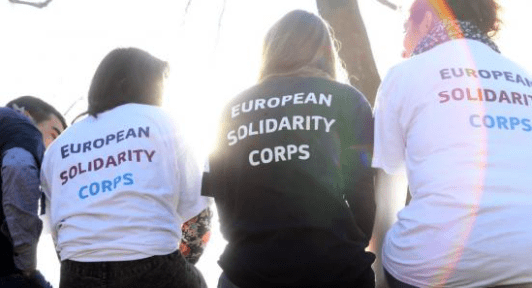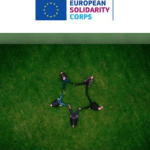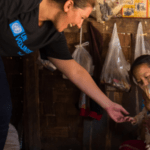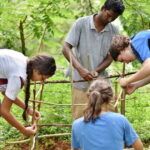The European Solidarity Corps is the new European Union initiative offering young people opportunities to volunteer or work in projects in their own country or abroad while supporting communities and people around Europe.
It was announced by the President of the European Commission, Jean-Claude Juncker, during his annual State of the European Union speech in September 2016, and officially launched in December 2016.
Who can participate
Young people from 18 years old, legally resident in or have the nationality of one of the European Union Member States,
Partner Countries:
- former Yugoslav Republic of Macedonia and Turkey
- Liechtenstein, Iceland and Norway
- Albania, Bosnia and Herzegovina, Kosovo, Montenegro, Serbia
- Armenia, Azerbaijan, Belarus, Georgia, Moldova, Ukraine
- Algeria, Egypt, Israel, Jordan, Lebanon, Libya, Morocco, Palestine, Syria, Tunisia
- Russian Federation.
Some projects may have additional restrictions on ages, legal residency or nationality, depending on the type of project and how it is funded.
How does it work
You can register for the European Solidarity Corps when you are 17 years old, but you cannot start a project until you are over 18.
You must also complete the European Solidarity Corps project before you turn 31.
After completing a simple registration process, you could be selected and invited to join a wide range of projects.
You have the choice between volunteering individually and in teams.
Individual volunteering
- can last from 2 months up to 12 months
- is full-time (between 30 and 38 hours a week)
- allows you to contribute to the daily work of an organisation that is actively benefiting the local community
- is usually ‘cross-border’ i.e. in a different country to where you live (though it can be there too – these are called ‘in-country’ projects)
- in some cases, you can take part for a shorter time (from 2 weeks to 2 months) for example for participants with fewer opportunities, or disabilities
Team volunteering
If you can’t commit for a long period, but still want to volunteer then check out team volunteering, which:
- can last between 2 weeks and 2 months
- is full-time (between 30 and 38 hours a week)
- you volunteer with people from at least 2 different countries
- the group will be between 10 and 40 volunteers and include people with fewer opportunities
- is usually abroad, though it can be in your home country.
Benefits
After participating in a volunteering project you will receive a certificate that documents your participation. You could use this when applying for jobs or further learning.
You will not receive a wage, but will on the other hand be entitled to travel, lodging and subsistence as well as insurance coverage for the duration of the activity and a small amount of spending money to cover their day-to-day living expenses.
You will also receive relevant training before you start and after you arrive on site.
Deadline : 01-31-2022







Leave a Reply